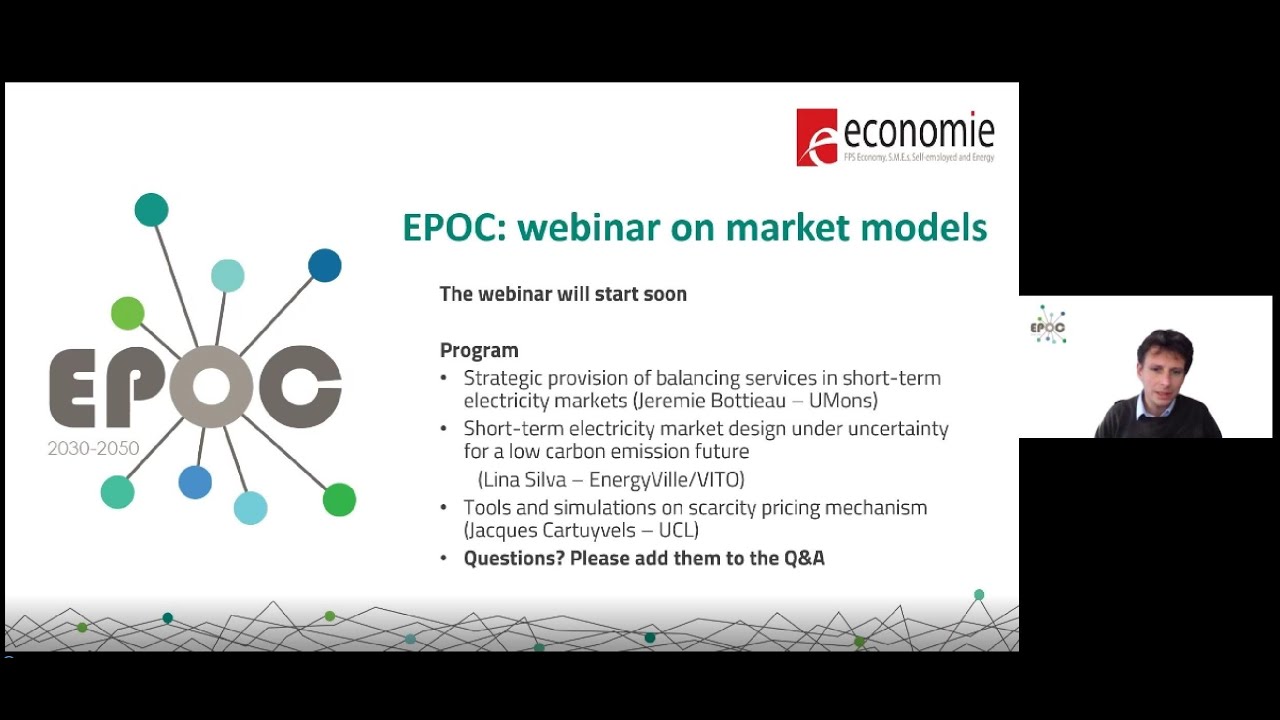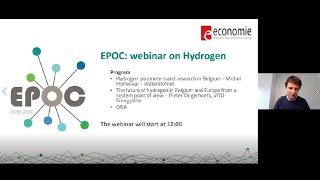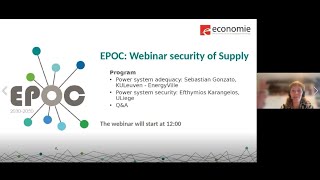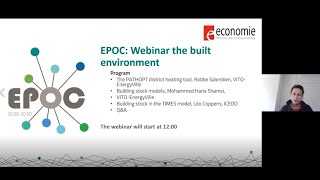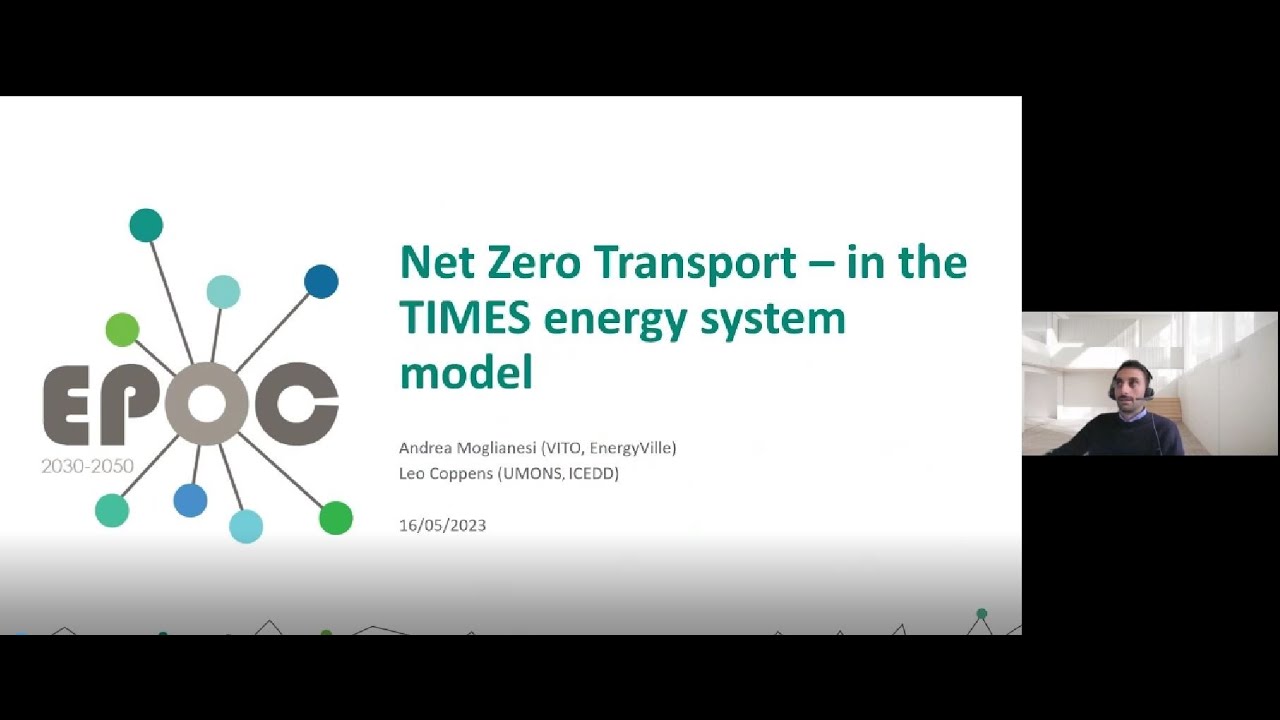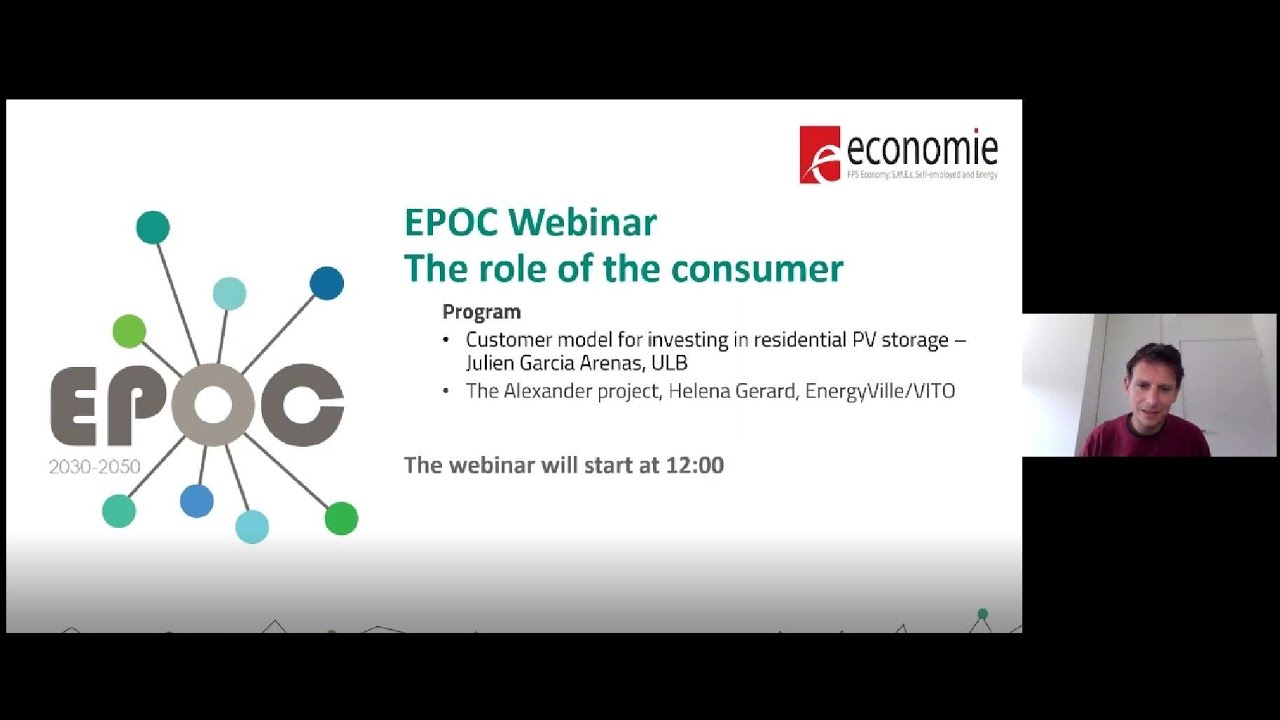- 24 March: Market models by Lina Silva (EnergyVille/VITO), Jérémie Bottieau (UMons) and Jacques Carthuyvels (UCL)
Agenda:- Short introduction on market models and focus of the EPOC research.
- Strategic provision of balancing services in short-term electricity markets (Jeremie Bottieau – UMons)
- Short-term electricity market design under uncertainty for a low carbon emission future (Lina Silva – EnergyVille/VITO)
- Tools and simulations on scarcity pricing mechanism (Jacques Carthuyvels – UCL)
- 19 April 2023: The role of hydrogen by Pieter Vingerhoets (EnergyVille/VITO) and Michel Honselaar (Waterstofnet)
Agenda:- Hydrogen potential and parameters (Michel Honselaar – Waterstofnet)
- The role of hydrogen in the Belgian energy system (Pieter Vingerhoets – EnergyVille/VITO)
- 3 May 2023: The Dunkelflaute – what is it, and how to tackle periods with low wind and sun by Francois Duchene (RMI) and Partha Das (EnergyVille/VITO)
Agenda:- The Dunkelflaute: an analysis from climate point of view (Francois Duchene – RMI)
- Impact of the Dunkelflaute on molecule backup requirements (Partha Das – EnergyVille/VITO and Léo Coppens – ICEDD)
- 5 May 2023: Models for adequacy & Security of Supply by Sebastiaan Gonzato (EnergyVille/KU Leuven) and Efthymios Karangelos (ULiège)
- Agenda:
- Introduction to adequacy and security of supply models
- The second presentation discusses generation adequacy models, which use advanced probabilistic computational techniques in comparison to current state-of-the-art assumptions (Sebastian Gonzato – EnergyVille/KU Leuven)
- This presentation includes several models: an electricity grid model and forecast error generator where uncertainties in e.g. wind and solar output are captured. In a second step, it is shown how a machine learning algorithm can greatly improve the speed and resolution of security of supply assessments (Efthimios Karangelos – ULiege)
- 11 May 2023: Buildings and heating by Mohammad Haris Shamsi (EnergyVille/VITO), Robbe Salenbien (EnergyVille/VITO) and Yves Marenne/Leo Coppens (ICEDD)
Agenda:- The PATHOPT tool, a computationally advanced tool connecting waste heat sources and heating demand (Robbe Salenbien – EnergyVille/VITO)
- The built environment: pathway to decarbonize the building stock (Mohammad Haris Shamsi – EnergyVille/VITO and Léo Coppens – ICEDD)
- 16 May 2023: Net zero transport of the future by Inge Mayeres (TML), Léo Coppens (ICEDD) and Andrea Moglianesi (EnergyVille/VITO)
Agenda:- Net Zero Transport in the TIMES energy system model (Andrea Moglianesi – EnergyVille/VITO)
- Rebound effects and policy implications of transport decarbonization pathways (Christophe Heyndrickx – Transport & Mobility Leuven)
- The market potential for Vehicle – to - grid in Belgium – a stated preference survey (Rosanne Vanpée – Transport & Mobility Leuven)
- 17 May 2023: The role of the consumer by Julien Garcia Arenas (ULB)
Agenda:- Consumer investment models (Julien Garcia Arenas – ULB)

